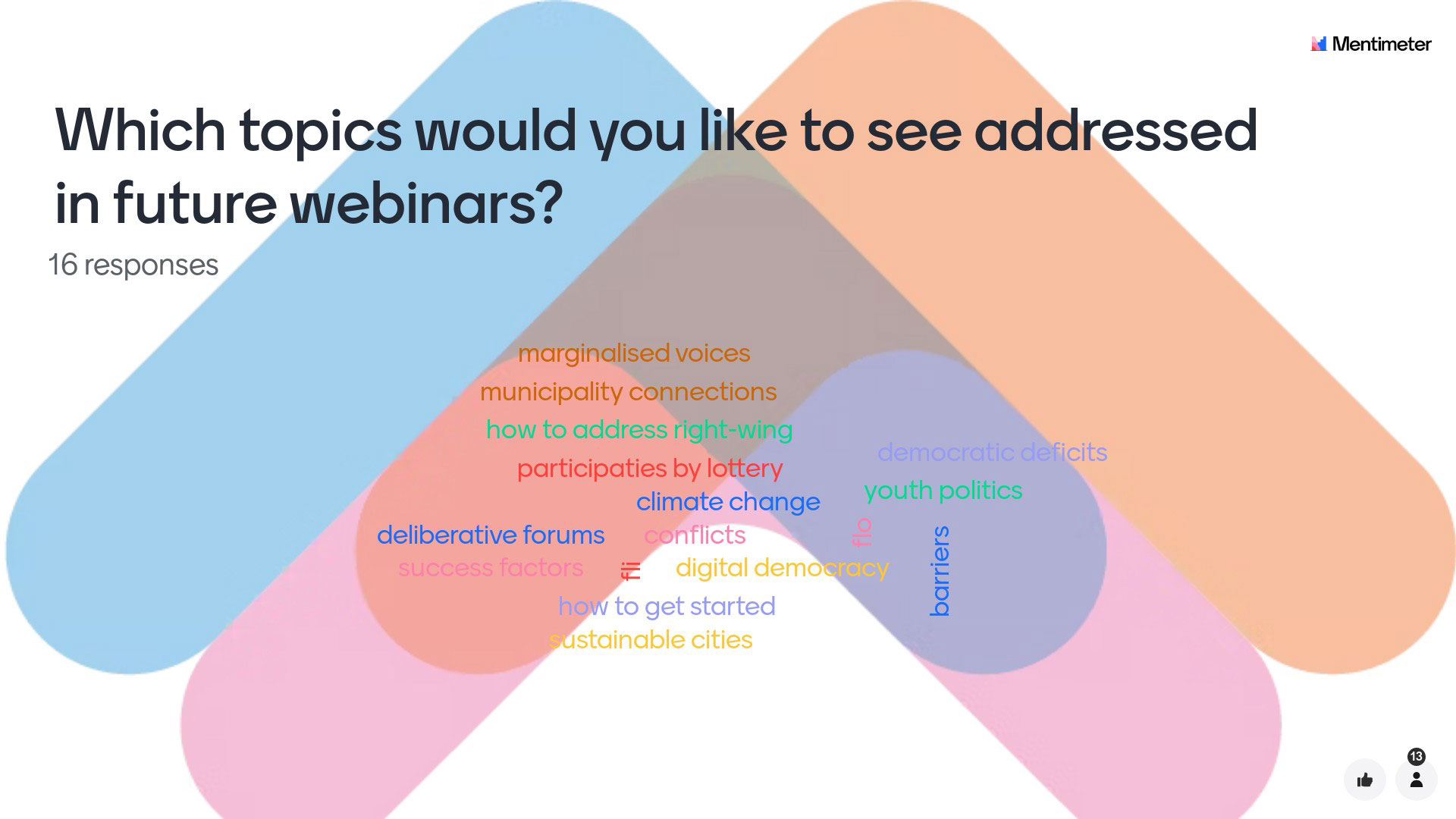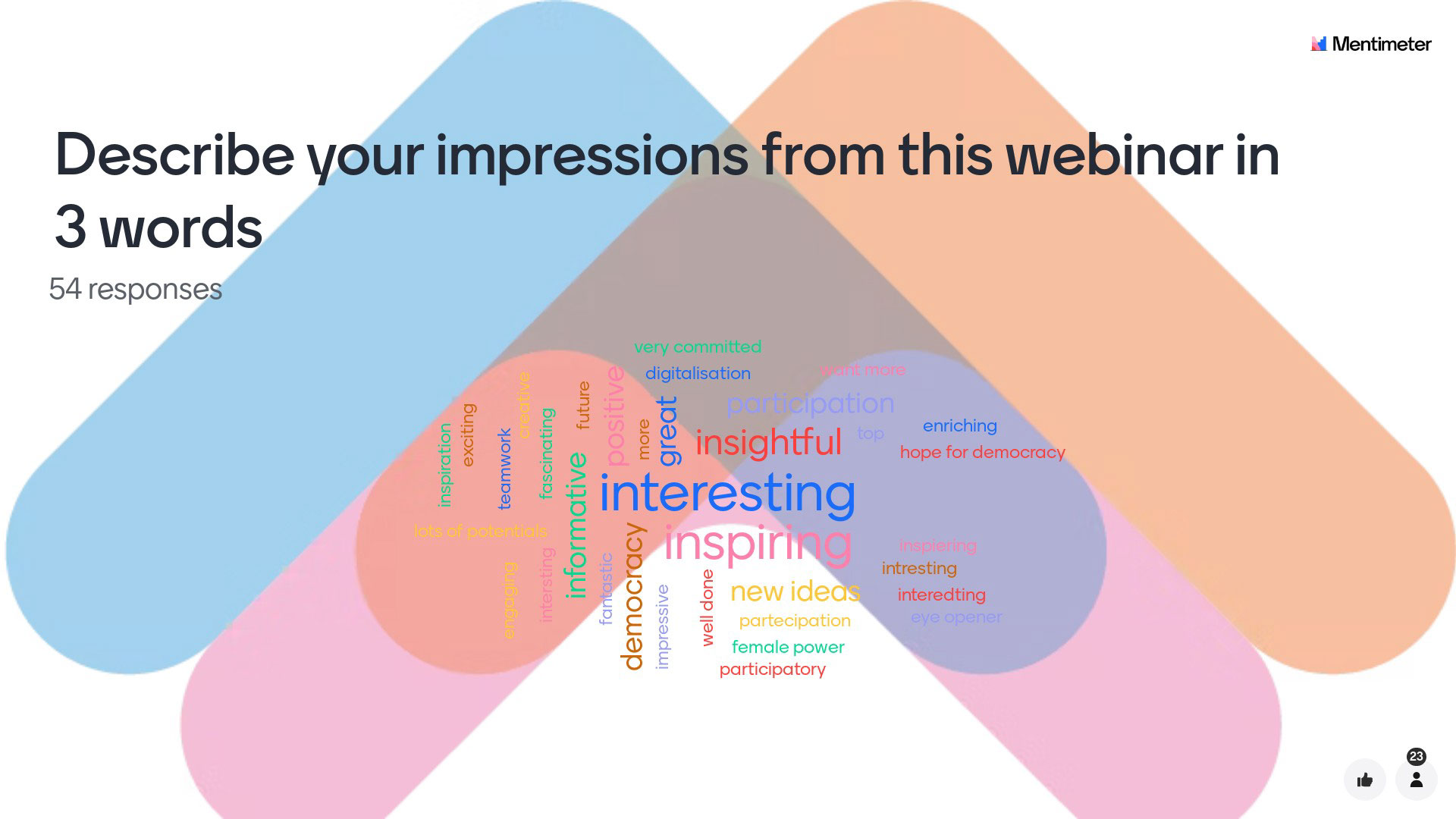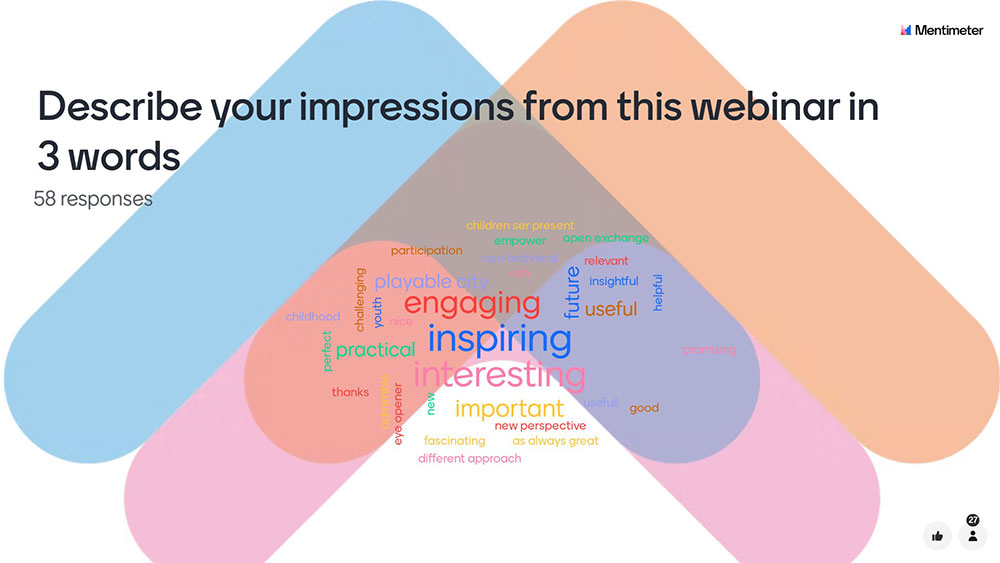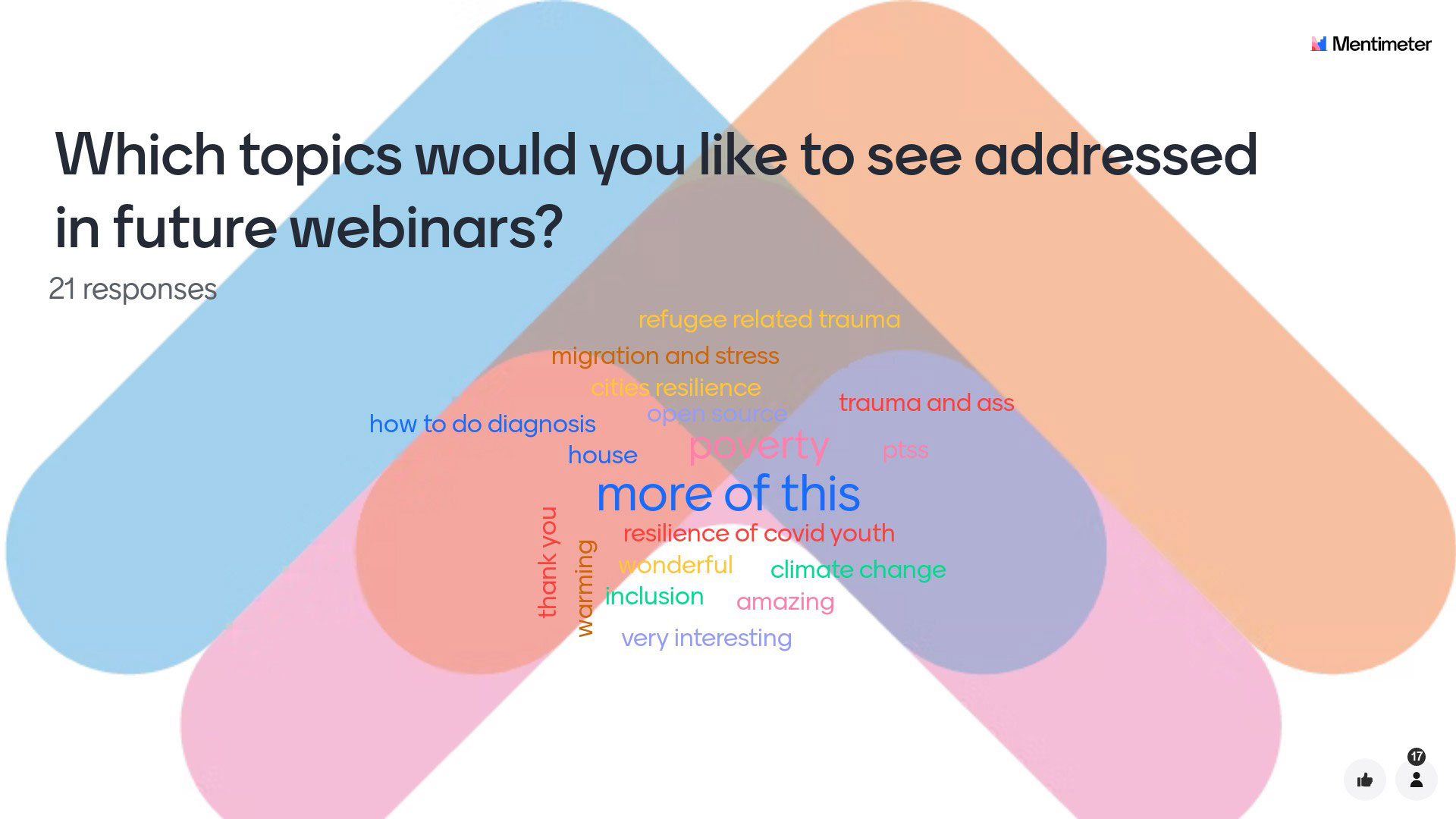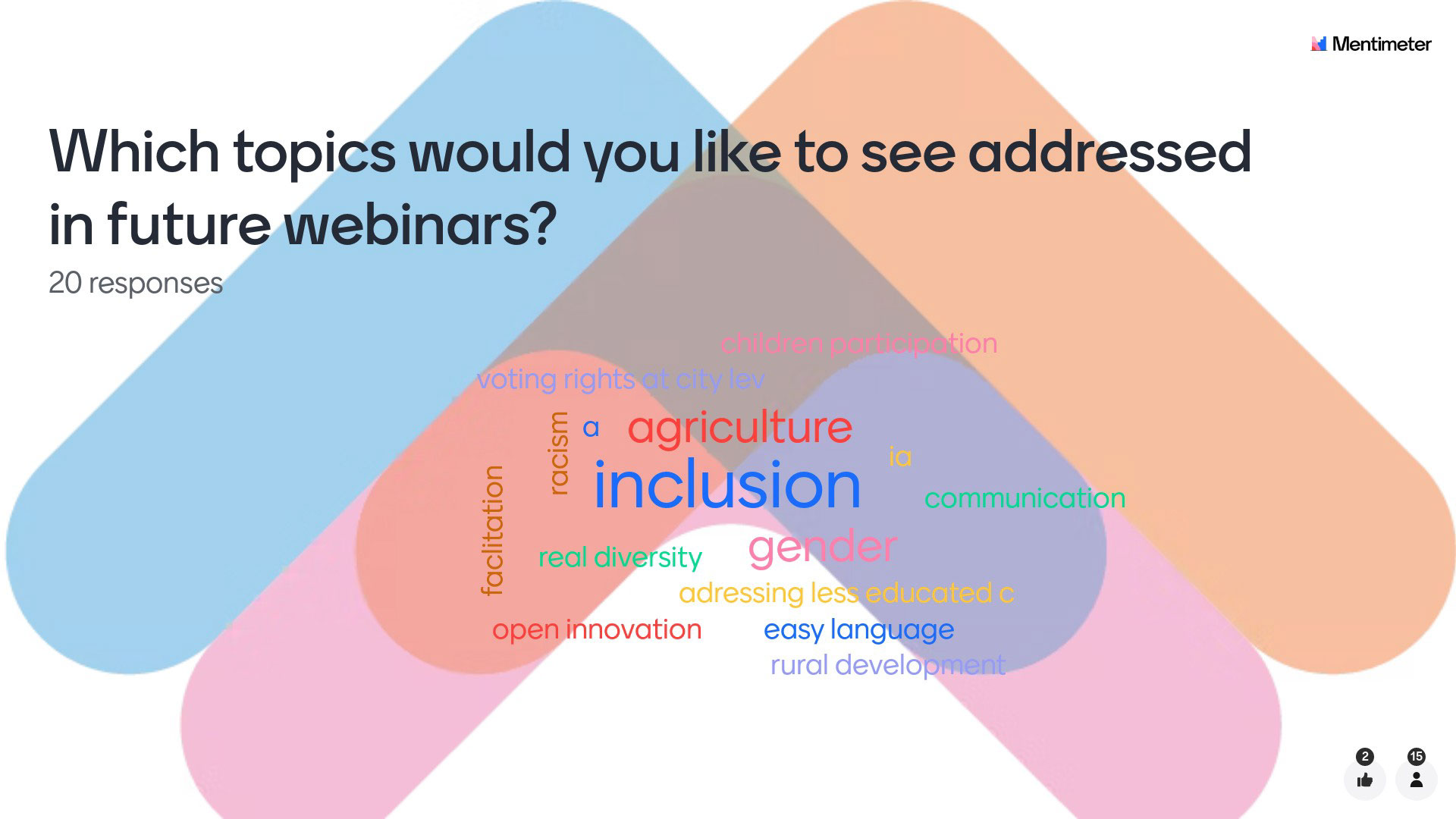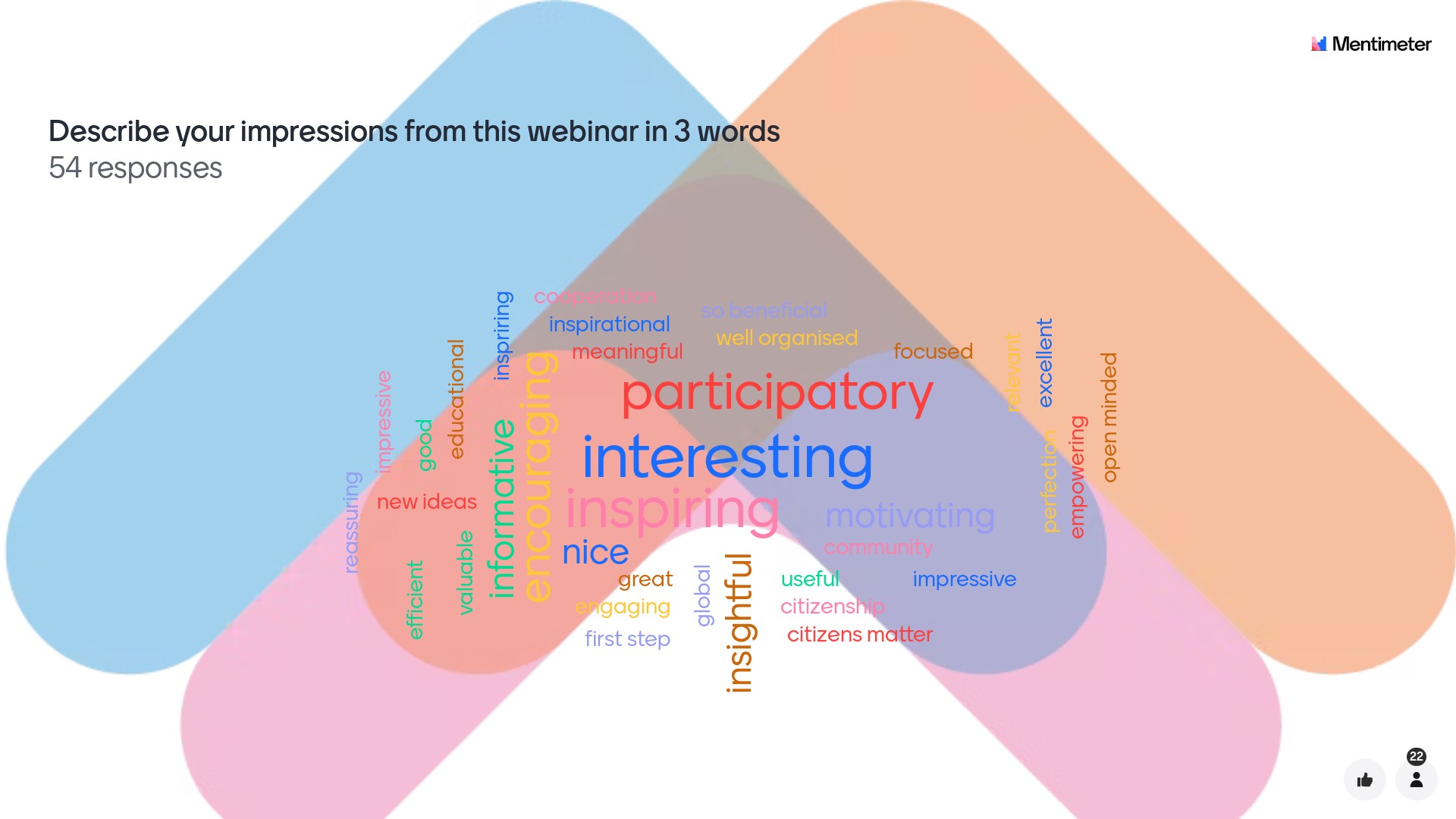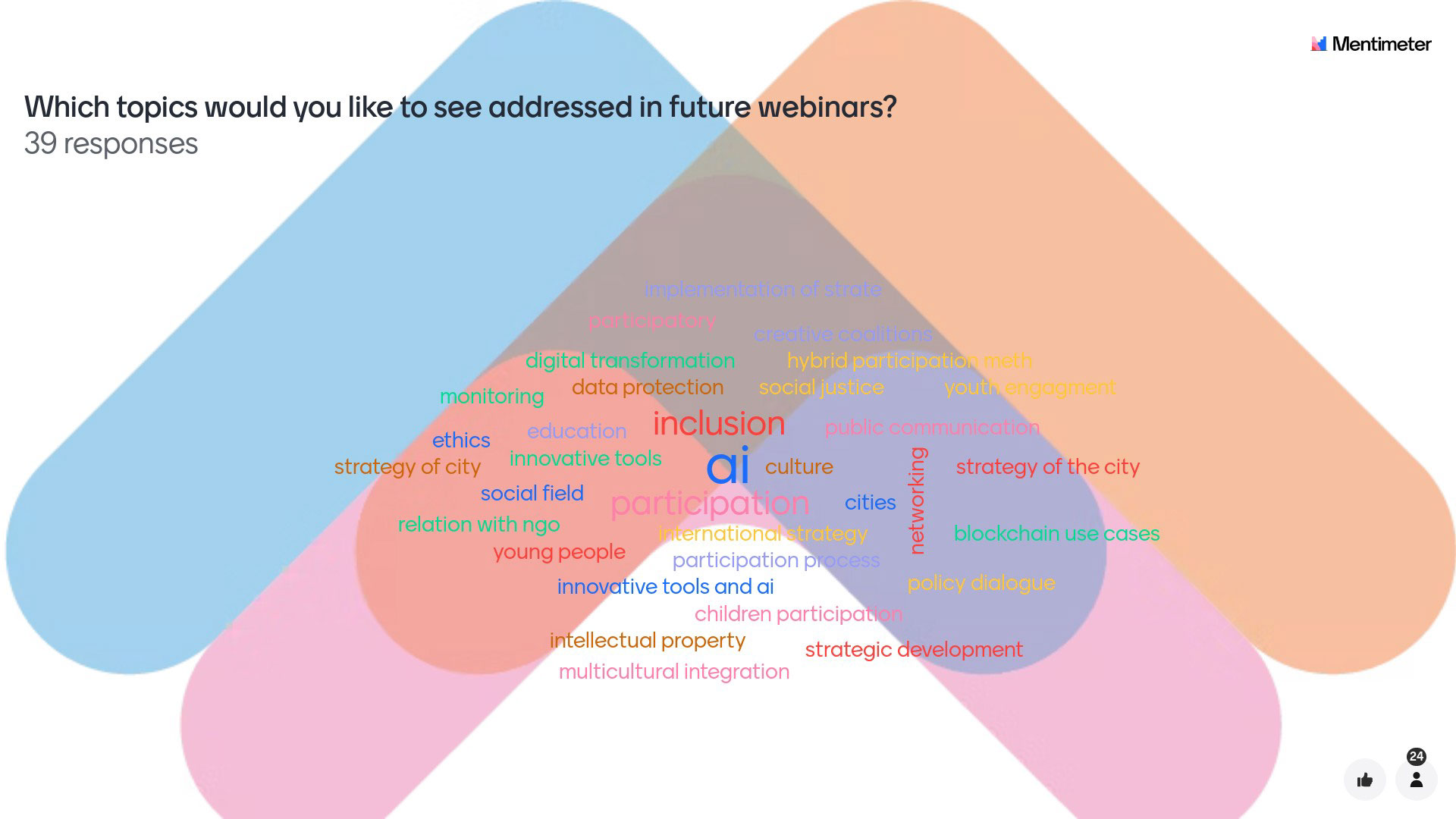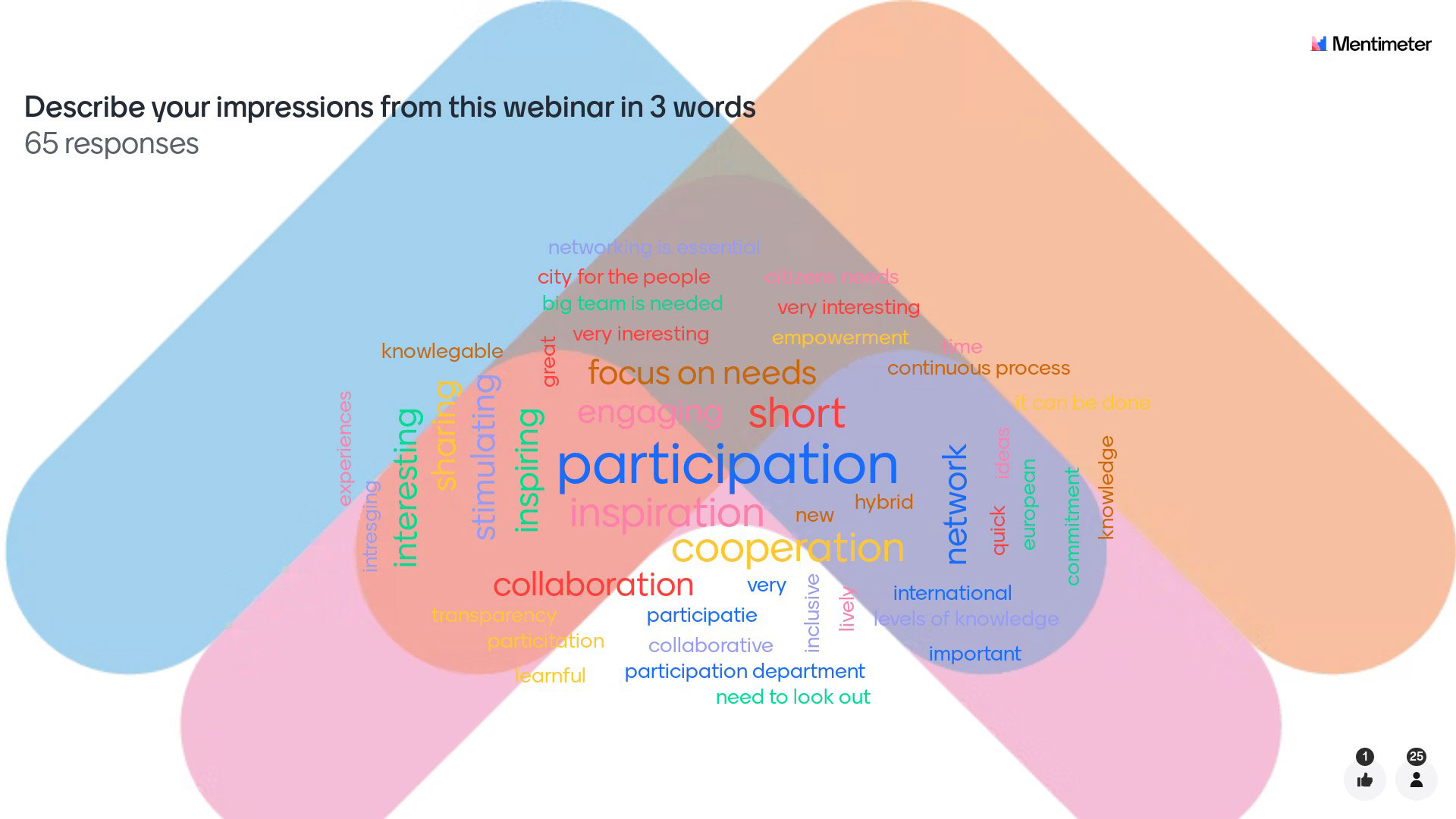European City Network – Webinars and Meetings

With the CERV-funded “European City Network” project, we are able to further develop the network and expand its activities, making it fit for growth. Sharing best practices and successful democracy and participation projects will inspire other cities to create impact in their communities by increasing the reach and impact of their projects, rebuilding citizens’ trust, and fostering their engagement on the local level.
The next European City Network webinar will be announced shortly.
Please register below to stay informed.
About the European City Network:
The European City Network (ECN) fosters participation and gives cities a platform to share successful projects which have a lasting impact on the wellbeing of citizens and the environment. City representatives come together regularly to share their expertise and best practices in democracy promotion at the municipal level.
There are three types of activities.
Physical Workshops: “Cities meet”
3-day long City Network Meetings focus on the host city’s field of expertise.
They consist of an interactive mix of workshops, field trips, and exchange with local organisations and stakeholders, plus networking opportunities.
Online Meetings: “Cities teach”
90-minute long webinars in which 3 member cities of the ECN present their best practices in the topic field to a wider audience.
Outline: Introduction, best-practice presentations, breakout sessions (3 in parallel), and a summary with the whole group.
Online Meetings: “Cities learn”
60-minute long webinars with external experts, proposed by the host city.
Outline: Introduction, experts’ input, followed by Q&A.
The focus topics of each of the host cities:
– Barcelona (Spain): Digital transformation & democracy in the city
– Brussels (Belgium): Climate, green city & biodiversity
– Antwerp (Belgium): Youth participation
– Braga (Portugal): Senior & Intergenerational Participation
– Cascais (Portugal): Inclusive, Social-City Development
– Bologna (Italy): Diversity & inclusion
Insights from our previous webinars
Insights from Cities Learn: Impact Garden Framework presented by Unity Effect
The Impact Garden Framework offers a regenerative approach for city leaders to navigate complexity and foster systemic change across sectors. This webinar, hosted by ECoD with Unity Effect, introduces the framework using real-world examples from Barcelona and Vienna. By viewing cities as living systems, the framework provides a shared language and tool to simplify complexity, energize participatory evaluation, translate strategies into impactful implementation, and cultivate collaborative ecosystems. Participants will gain a tool applicable to various initiatives, helping to make urban transformation visible, actionable, and lasting.
In conclusion, this webinar was well-received and exceeded the participation targets:
- Laila Martins and Jannik Kaiser, from Unity Effect, presented the Impact Garden guiding framework, a regenerative evaluation and collaborative approach aimed at peer learning, inclusive growth and systemic change in cities and organisations. Both presenters fostered an open dialogue with representatives from Barcelona and Vienna, who explored how Impact Garden’s framework can be applied across varying city contexts.
- Antonia Sanches Hernandez, from the Barcelona City Council, shared how Barcelona utilised Impact Garden to create an “interconnected ecosystem” through simple, but engaging evaluations and dialogues. She emphasised how this approach supports urban development in a sustainable, inclusive, and accessible way.
- Marlene Fuchs, City Planner for the City of Vienna, described how Impact Garden has served as an effective participation tool. She highlighted the framework’s co-creative and participative characteristics that enabled for multilateral collaboration and citizen engagement.
Through a regenerative paradigm that focuses on inclusivity and participatory action, Impact Garden is able to support changemakers focusing on both immediate and long-term systemic changes.
Impressions from the webinar:
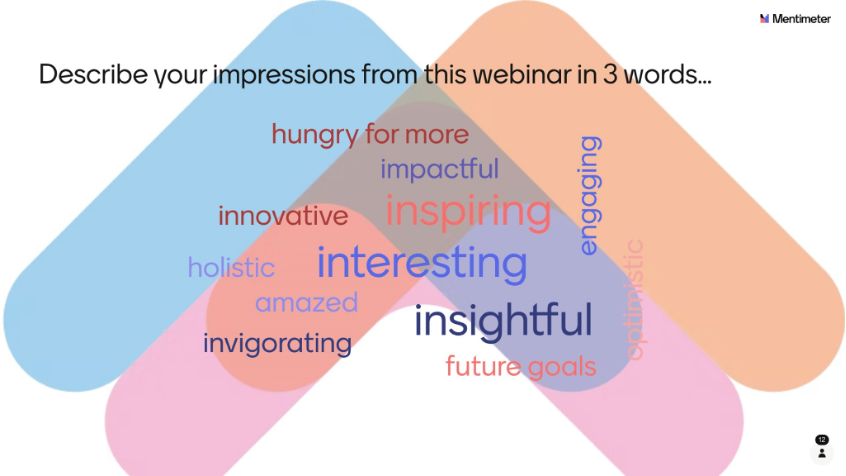
Re-watch the webinar
Insights from Cities Learn: Data Feminism – a tool for building more equitable cities
Hosted by the City of Bologna, with guest expert Giulia Sudano
Giulia Sudanno, Co-Founder of Period Think Tank, presented the seven principles of data feminism. She described how a feminist lens emphasises the need to challenge power dynamics and analyse hierarchies, as well as promoting the collection of qualitative experiential data. This means the analysis also considers the context. Disaggregating data by gender facilitates Gender Impact Assessment, which is fundamental to developing policies to create more equitable cities. In Bologna, gender mapping measures parameters such as social vulnerability, access to welfare services, care-giving burden, and economic dependence as part of its assessment of municipal services according to need and current infrastructure. Such data collection and analysis should be mandated as European policy to ensure gender equity goals can be achieved.
Impressions from the webinar:
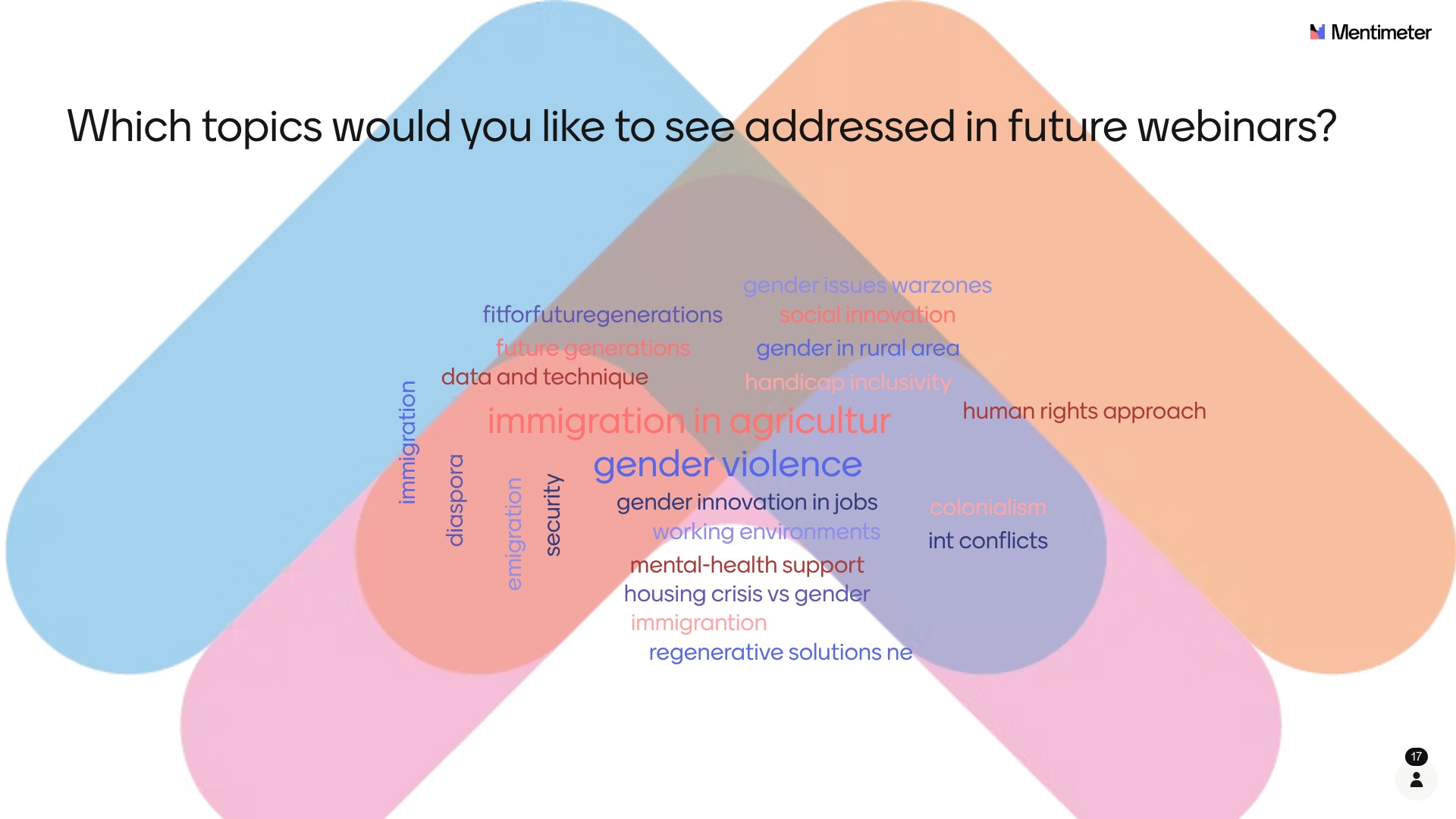
Re-watch the webinar
Cities Teach: Diversity & Inclusion
Hosted by the City of Bologna
with contributions from the City of Antwerp and the City of Rotterdam
Beatrice Collina, Project Manager at the Rights, International Cooperation & New Citizenship Unit, presented the Municipality of Bologna’s innovative participatory process of co-reviewing municipal services with a view to improving them for all residents, and particularly those with a migrant background. The pilot was developed in the framework of the European Project UNITES, with a focus on the educational services and three main goals: to reach and involve people with migrant background; to improve the accessibility and inclusivity of educational services; and, to develop a model to be employed and replicated even in other contexts.
Karen Milants, Youth Leisure-Time Policy Officer for the City of Antwerp, described how the city has analysed, improved, and developed the accessibility of leisure activities for children and youngsters with special-care needs. Specifically, Karen emphasised the importance of shared knowledge from various professionals in order to create inclusive spaces for young people and children with special care needs. It was also noted that it is not necessary to create new initiatives but that improving existent initiatives and making those more inclusive and accessible is equally effective. She presented the example of a training programme for organisations, which includes classroom training, intervision, and on-the-job support.
Shantie Singh, Senior Policy Advisor on Domestic, Gender-Based & Honour-Related Violence for the City of Rotterdam, gave an overview of the city’s approach to gender-related violence, with an extra focus on tackling honour-related violence. Using the city’s neighbourhood approach, Rotterdam works together with key community stakeholders and with survivors of domestic violence, who are experts by experience, in order to tackle this issue in an effective way that also respects cultures and traditions.
Impressions from the webinar:
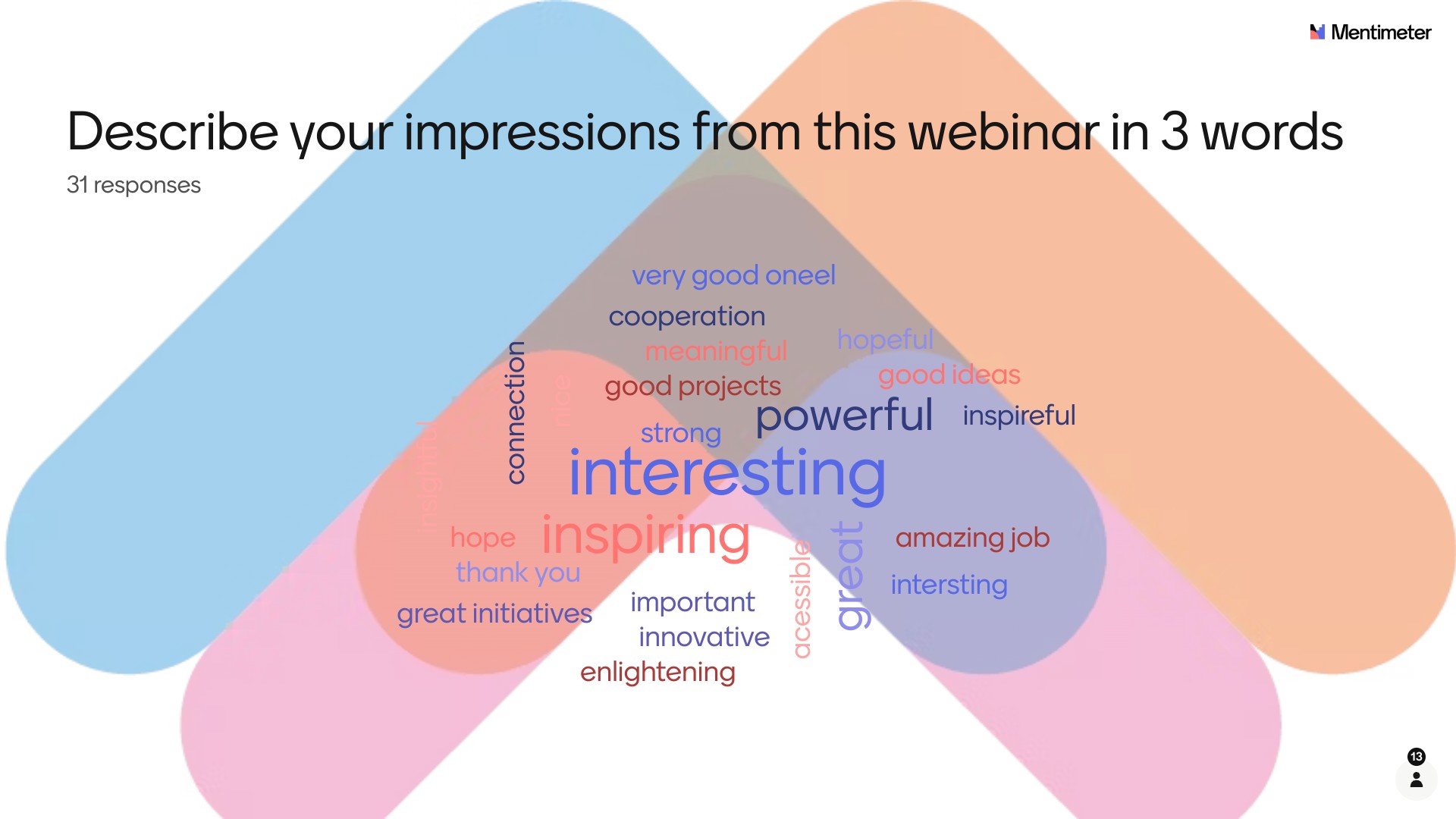
Re-watch the webinar
Insights from the thirteenth webinar:
Cities Teach: Inclusive Social City Development
Hosted by the City of Cascais
with contribution from the City of Krakóv
Tiago Leitão, President of Aproximar – Social Innovation Cooperative’s presentation highlighted the City of Cascais’ strategies for creating and strengthening Social Innovation Clusters as drivers of sustainable development and social cohesion. He went into detail about the collaborative approaches used in order to engage organisations, communities, and both the public and private sectors.
Mateusz Płoskonka, Deputy Director, Department of Dialogue, Consultations & Citizen Contact for the City of Krakow Office, presented the City of Kraków’s impressive infrastructure put in place to support participation within the city. His presentation focused on initiatives related to civic engagement and community development in Kraków, highlighting successful projects that foster collaboration between citizens and local authorities.
Impressions from the webinar:
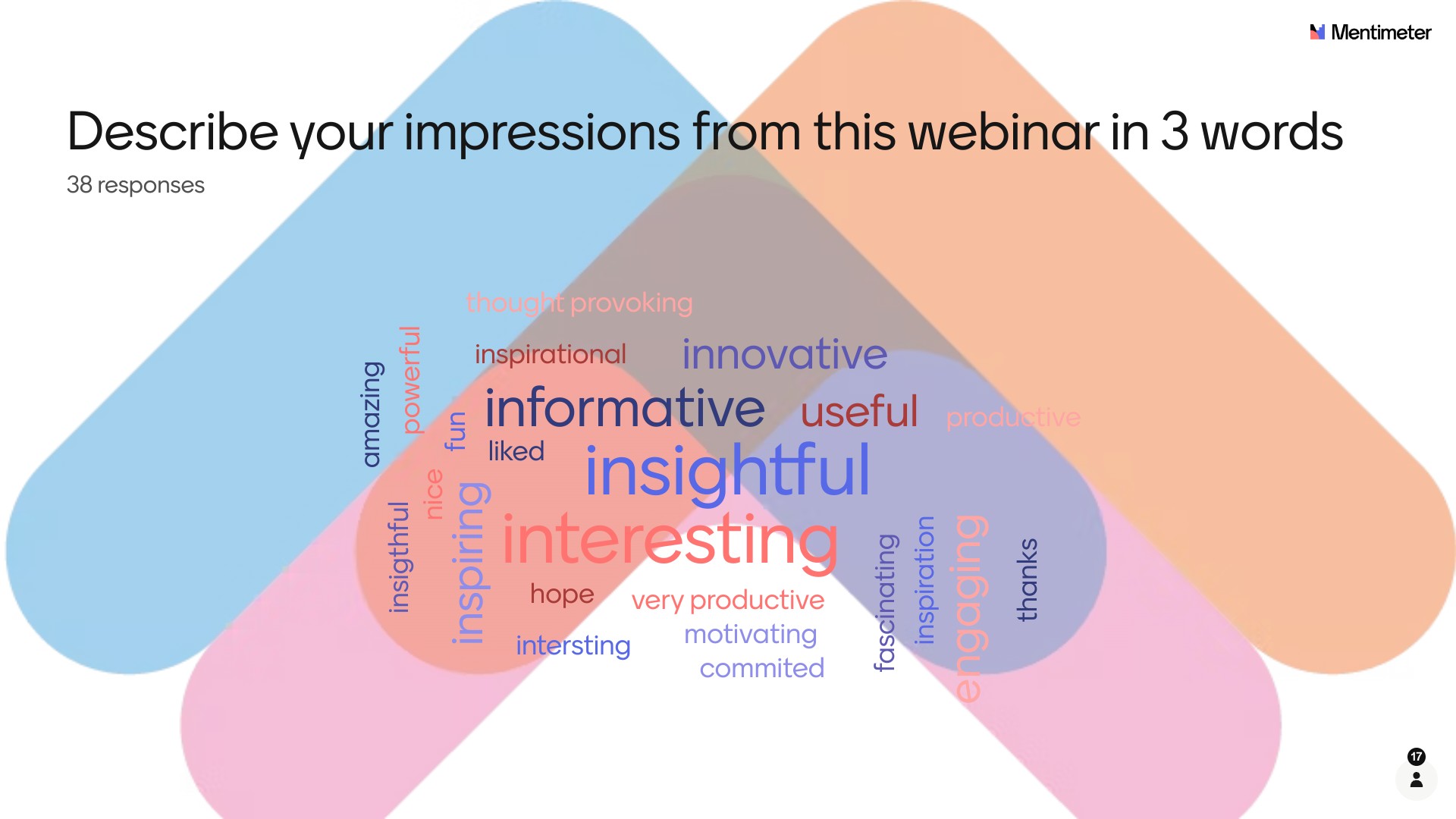
Re-watch the webinar
Insights from the twelfth webinar:
Cities Learn: Communities in Action
Hosted by the City of Cascais
with guest expert Councillor Carla Semedo
Carla Nunes Semedo, City Councillor for Social Cohesion, Urban Development & Inclusive Public Policies at Cascais Municipality, gave us an insight into the Communities in Action programme. This initiative fosters urban regeneration and social inclusion in vulnerable areas through synchronised, community-driven solutions. Carla spoke about how reversing persistent patterns of social fracture can create meaningful and lasting impacts in fragile communities.
Impressions from the webinar:
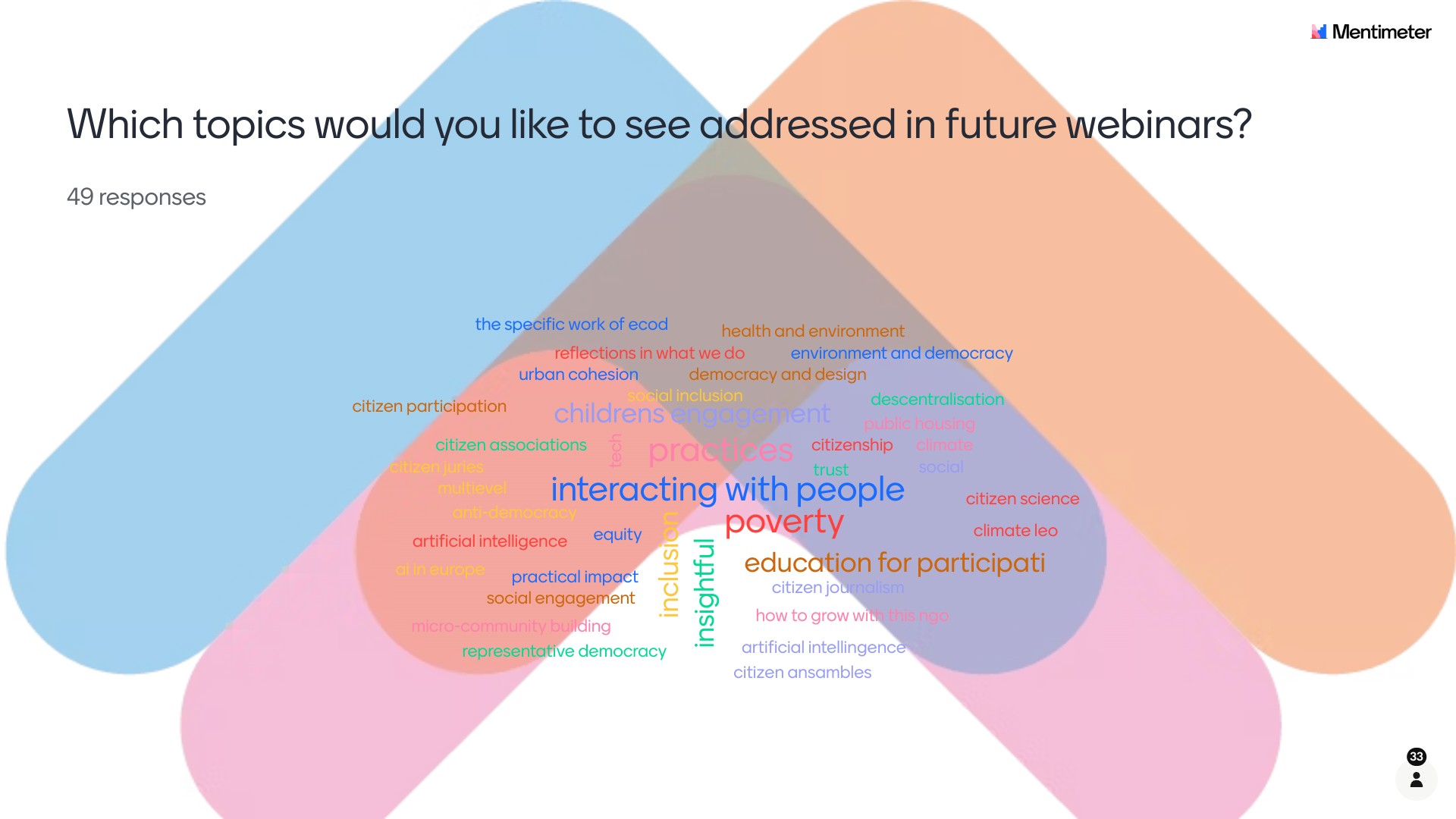
Re-watch the webinar
Insights from the eleventh webinar:
Cities Learn: Disinformation in the City
Hosted by ECoD NPO with guest experts Paul Costello and Ika Trijsburg
and
Cities Learn: Disinformation in the City 2.0
hosted by ECoD NPO with guest experts Paul Costello, Graham Wetherall-Grujić and Mathis Dippon
Jessica (Ika) Trijsburg, Research Fellow in City Diplomacy at the Melbourne Centre for Cities, presented the findings of a collaborative research project she led, looking into how cities connect and collaborate to address shared and complex challenges, in this case, disinformation. She highlighted the important role cities play, as the most trusted level of governance, and the opportunities of harnessing the collective intelligence of a group of diverse city specialists. In order to build trust and community, any disinformation response must be non-partisan and support the rights of people to express dissent and protest freely.
Paul Costello, Senior Programme Manager for the German Marshall Fund’s Cities Programme (Berlin Office), reviewed the 10 principles that resulted from the collaborative research project. He also highlighted the importance of the four spheres of trust – trusted institutions, information, people and places – and that building trust goes hand-in-hand with building community. This understanding is the foundation of working along the disinformation continuum of preemption, spread prevention, debunking, recovery or resilience, and sense-making.
Graham Wetherall-Grujić, Lead Expert for Democracy Technologies at the Innovation in Politics Institute, discussed a notorious example of misinformation against green energy in Germany, which illustrates how complicated identifying and diffusing disinformation can be, and why fact checking alone is not enough. Interestingly, community ownership appeared to be an effective measurement to diffuse disinformation against wind farms.
Mathis Dippon, Democracy Year Manager at European Capital of Democracy NPO, presented Truth, Lies & Democracy –a key format in the European Capital of Democracy’s Democracy Year events. He gave an overview of what went down at the game jam in Barcelona this year as well as an insight into what’s planned for this event in Vienna 2025 and how you can get involved.
Insights from the tenth webinar:
Cities Teach: three best-practice examples of Senior & Intergenerational Participation
On Wednesday 20 November 2024, 10:30 – 12:00 (CET)
Hosted by ECoD NPO with contributions from the City of Antwerp, the City of Barcelona and the City of Bratislava
Andrea Bardyn, Deputy Branch Director at Duo for a Job and Marije Plantinga, Project Leader for Youth Unemployment for the City of Antwerp, described how the city works with DUO for a JOB to tackle the issue of unemployment using an intergenerational and intercultural approach to mentoring. By connecting young job seekers from migrant backgrounds with experienced mentors over 50, the organisation aims to promote labour equality while valuing the expertise of seniors. The results speak for themselves, with over 70% of mentees finding employment within 12 months, while also reporting improved language skills and an expanded network.
Laura Copete, Digital Inclusion Manager for the City of Barcelona, gave us an overview of the Cibernarium Digital-Skill Test. This innovative online tool helps citizens assess their digital skills and offers personalised recommendations for Cibernarium’s free, citywide online training activities. Moreover, by factoring in socio-economic factors such as age, income, immigration status, and education level; the aggregated results provide a detailed overview of Barcelona’s digital literacy landscape, allowing for tailored policies and programmes to address unique local needs and barriers.
Eva Surovková, Head of Department of Social Support for Seniors and People with Disabilities for the City of Bratislava, and Ingrid Tomešová, Support for Active Ageing and Prevention of Loneliness at the Department of Social Support for Seniors and People with Disabilities for the City of Bratislava, presented the “Support for Active Ageing and Participation of Seniors” project, including the “Council of Seniors for the Rights of Elderly Citizens” and the subsidy programme “Bratislava for All” which offers financial support to NGOs which focus on intergenerational solidarity and the improvement of quality of life for senior residents in Bratislava.
Insights from the ninth webinar:
Cities Learn: the Intergenerational Approach of Braga’s Entrepreneurial Impact Programme
Hosted by the City of Braga with guest expert Carlos de Sousa Santos
Carlos de Sousa Santos, Co-Founder of the Human Power Hub, spoke to us about Braga’s intergenerational approach to entrepreneurship, which is fostered and supported by various programmes coming out of the Human Power Hub – the City of Braga’s Social Innovation Centre. Carlos presented his experience of running intergenerational programmes and discussed how the “Quadruple Helix” model is used to further integrate collaborative approaches to policy development. The Quadruple Helix is a hybrid model of social innovation which combines the strengths of civil society, the public, private and educational sectors, and citizens in a disruptive way.
Insights from the eighth webinar:
Cities Learn: Sociocracy – Democracy as it could be
Hosted by ECoD NPO with guest expert Barbara Strauch
Barbara Strauch, Certified Sociocracy Expert CSE and Auditor for Educational Programmes in the Association of German-speaking Sociocracy Centers, gave us an introduction to Sociocracy and it’s four founding principles:
1- Consent principle – decision-making with consent
2- Circle principle – semi-autonomous circles
3- Double linking – circles are always connected by two people
4- Open elections – elect people for tasks and roles by consent
She then handed over to the four guest speakers who gave us in insight into their experiences of sociocracy in practice:
– Naya Tselepi, Dr. Human Geography, PostDoc Researcher and Educator, Appointed Lecturer University of Thessaly, CSE, Elliniko Kentro Sociokratias, spoke about the first sociocracy-based Youth Council. Also borrowing from the Indian concept of “neighbourocracy”, the Youth Council managed to reinvigorate the local youth community to engage in local activities and actions.
– Florian Bauernfeind, Consultant and Facilitator for Participation, CSE, CEO of Sociocracy Center Austria, gave us an insight into how the Sonnwend District in Vienna is empowering its residents to take meaningful action to address local issues by implementing a sociocratic neighbourhood council.
– Pia Haertinger, Dr.Phil., City Councillor in the City of Augsburg and Chairwomen of Sociocracy Center Augsburg, presented the regeneration of a neglected area into a playground guided by sociocratic practitioners. A key learning from this process is that patience, persistence and creativity builds a community from the ground up.
– Rita Mayrhofer, Dr.DI Senior Researcher, Boku University (ILAP, Vienna) and Chairwomen of Sociocracy Center Austria, spoke about a group of villages who implemented sociocratic decision-making at the local council level. This process resulted in greater levels of trust in political representatives and generally more political engagement.
Insights from the seventh webinar:
Cities Teach: Democratic, Social & Digital Inclusion
Hosted by ECoD NPO with contributions from the City of Linz and the City of Kyiv
Silvia Hackl, Head of Innovation & Participation in the Department for Economy, Innovation, Climate Protection & the EU of the City of Linz, presented the Create Your City initiative. This project came about as a positive response to a brief period of civil unrest in 2022 where, predominantly young people, rioted in the streets of Linz. Realising the City needed to find a way to include the voices of young people, a series of participation workshops were developed enabling them to co-creating their city. Every month classes of school children are invited to the Old City Hall and Municipal Council Chamber to share their views on the city and to actively shape the places they frequent.
Victoriia Itskovych, Chief Information Officer of the City of Kyiv City, presented the city’s experience of implementing Citizen-Driven Democracy. The on-going conflict in Ukraine has brought into sharp focus how digital tools are particularly agile and useful in the face of a rapidly changing security situation. An app which had previously facilitated “ordinary” citizen life (parking passes, public transport tickets, petitions, etc.) has quickly been adapted into a life-saving tool which alerts citizens to air raids and maps the city’s bomb shelters. Kyiv’s residents know all too well that, despite the war, life still goes on. Digital tools enable them to make decisions remotely, when it’s too dangerous to gather many people in one place or to travel across the city, such as via the Condominium E-Voting platform.
Laura Thomas, European City Network Manager at the ECoD NPO, presented a sneak-peek into the 3rd call for the next European Capital of Democracy 2026. She gave an outline of the application process, including the pre-requisites, timeline, and evaluation and selection procedures. If you’re interested in learning more about applying to become ECoD 2026, please pre-register your interest here and book one of our information and exchange workshops.
Insights from the sixth webinar:
Cities Teach: Youth Participation
Hosted by the City of Antwerp with contributions from the City of Barcelona
Wim Seghers, Play Space Expert at the City of Antwerp’s Youth Department gave us an introduction to the “playspace web” method and how it’s developed in his presentation “how to create a child-friendly network in your city”. His presentation highlighted the importance of taking children seriously as experts of their own neighbourhoods. They know the best and the worst places in the area and can also provide useful data on which routes they take to move around the city and by which modes of transport. The City of Antwerp introduces play features that allow children to jump on/off, follow and interact with the built environment. Often these features also fit with the City’s plans to green the urban environment and make it more climate resilient, for example with play fountains cooling down the youngsters on hot summers’ days.
Laia Pineda, from the Childhood and Adolescence Institute Barcelona, shared the City of Barcelona’s experience of implementing the “Children Have Their Say” project. Barcelona takes a rights-based approach to youth participation – children have the right to be heard and it’s important that the City understands childrens’ wellbeing from their own perspective. Interactive workshops with over 2000 children resulted in the Children’s Agenda. One major challenge is ensuring adequate representation of the group of children involved in developing the agenda, which can be partly mitigated by encouraging peer-to-peer communication about the initiative and what it means for the children of the city.
Konstantina Chrysostomou, an activist at the Estel co-operative, presented the “Volem Decidir!” (We want to decide!) process which took place in the City of Barcelona. This process empowers children and young people to participate in city life in a way that they find fulfilling. Like the “Children Have Their Say” project, children of eight years and older took part in the process, which also consisted of workshops which aimed to find out more about the children’s community, topics of interest, and ideas about participation. Broken into two age groups (8-11 year old and 12 to 17 years old), each group had different priorities and topics of interest. The youngest children focused on bullying, poverty, and protecting animals, while the older group were interested in well-being, public spaces, and housing.
Cities Learn: Growing Up in Poverty, a trauma-sensitive approach
Hosted by the City of Antwerp
with guest expert Ybe Casteleyn.
In this webinar, Ybe Casteleyn underlined the importance of being aware of the impact of trauma in both our personal and our professional lives. We learnt that traumatic stress comes in many different forms, including shock, chronic stress and PTSD. Complex trauma has a severe impact on the emotional, mental, and physical development of children, as well as affecting their sense of self and belonging. Trauma-informed care helps people realise the impact of traumatic stress and recognise the signs of trauma. Through this understanding, those who have experienced trauma can learn techniques to help them regulate themselves in healthier ways, and not resort to unhealthy coping mechanisms.
ECN Meeting two:
Cities Meet: showcasing the City of Antwerp’s Youth Participation projects and initiatives
14.-16.05.2024, Antwerp
52 participants from 13 countries (48 from 11 eligible for CERV)
Insights from the fourth webinar on 16 April 2024
Cities Learn: Citizens’ Assemblies – How and Why?
Hosted by the City of Brussels with guest experts Dimitri Lemaire and Louise Humblet from Particitiz
125 participants from 24 countries (106 from 17 eligible for CERV)
Dimitri Lemaire and Louise Humblet from Particitiz walked us through how Citizens’ Assemblies are successfully implemented, what basic conditions are required before you begin such a process, and some of the most common challenges faced along the way. Their presentation covered the five steps of implementation:
1. Ensuring there’s genuine political support and will to implement the outcomes;
2. Setting the agenda, with an open question defining the focal topic;
3. Selecting the right experts to present the information in a transparent and accessible way;
4. Designing the recruitment, methods, and follow-up procedures;
5. Thorough evaluation to ensure future processes improve based on participants’ experiences.
They also highlighted the value in implementing Citizens Assemblies – citizens are experts in the field of their own experiences, which are invaluable to capture and explore when it comes to effective policy making.
Insights from the third webinar on 14 March 2024:
Cities Teach: Climate Assemblies, Green Cities & Biodiversity
Hosted by the City of Brussels with contributions from the Municipality of Valongo and the City of Vienna
127 participants from 24 countries (110 from 18 eligible for CERV)
Cities Teach: Climate Assemblies, Green Cities & Biodiversity
Hosted by the City of Brussels
with contributions from the Municipality of Valongo and the City of Vienna
Marion Julien, Coordinator for the Climate and Cities in Transition Team for the City of Brussels, highlighted the importance of on-the-ground citizen engagement. She presented the City of Brussels’ use of a cargo bike to reach citizens where they are, thus lowering the threshold for engagement. She also reflected on the challenge of motivating and adequately compensating participants for the long-term engagement required to co-create Climate Plans.
Tiago Koch, from the Environment Division of the Municipality of Valongo, presented the BiodiverCities project which aims to tackle the urban heat-island effect and promote and support biodiversity. Project activities include creating green city walks and BIOteca biodiverse book-exchange stations, implementing invasive-species control measures, and creating pollinator gardens and bug hotels. Citizen participants are involved in an on-going data-collection process to evaluate and improve engagement activities.
Katharina Toth, Energy Planning Consultant for the Vienna Climate Team of the City of Vienna, gave us an overview of the Vienna Climate Team process, focussing on the Citizens’ Jury. The Citizens’ Jury is made up of a group of residents from a district, who are randomly selected while taking into account socio-demographic factors. The Vienna Climate Mosaic game helps jury members understand the complex interactions of various climate actions, with decisions made using a three-tier rating system.
ECN Meeting one:
Cities Meet: Tackling social and climate challenges with Brussels’ solutions
25.-27.03.2024, Brussels
39 participants from 13 countries (35 from 9 eligible for CERV)
Insights from the second webinar on 22 February 2024:
Cities Learn: Sweating to make Data-Driven Policies a Reality
Hosted by the City of Barcelona with guest expert Pau Balcells, Programme Manager of the Municipal Data Office
103 participants from 29 countries (87 from 22 eligible for CERV)
Pau Palcells, Programme Manager of the Municipal Data Office of the City of Barcelona, presented the challenges and opportunities of using data to drive municipal policies. As technology continues to advance rapidly, politicians struggle to use data to enhance democratic processes. But data can be used as a rich growth medium for policies, as well as to evaluate their efficacy and to focus services based on citizens’ needs. One important factor is to have a robust Data Governance Model in order to safely and transparently manage data while making it both usable and available. It’s also prudent to remember that perfection is the enemy of progress and that an agile approach which delivers short-term results helps to prove the usefulness of data when developing or evaluating policies.
Insights from the first webinar on 23 December 2023:
Cities Teach: Digital Transformation and Democracy in the City
Hosted by the City of Barcelona with contributions from the City of Bologna.
90 participants from 23 countries (73 from 17 eligible for CERV)
Arnau Monterde, Director of Democratic Innovation Department of Barcelona City Council, presented the Decidm platform, which is a free, open-source platform for citizen participation. This platform was developed by the Democratic Innovation Department of Barcelona City Council and works at the city, technical, and community levels to further the development of democratic technological innovation. Decidim is now a global platform for digital democracy, as it has been implemented in 30 countries by 300 public organisations, engaging 3 million participants. The platform facilitates participation spaces, public debates, and participatory budgets, among other forms of digital democracy.
Giovanni Farneti of Agenda Digitale presented the Municipality of Bologna’s Zerodiciotto App, the Mobility Management System, and the Portici App. The Zerodiciotto App facilitates communication between parents and Municipal Schools, to report absences and receive real-time notifications from the schools. The Mobility Management System allows two-way communication between the Municipality and residents about how mobility is managed within the city, with efficient communication and distribution of questionnaires and surveys, and subsequent collation and dissemination of the collected data. Lastly, the Portici App monitors the city’s Porticos with an interactive dashboard that facilitates residents’ participation.



